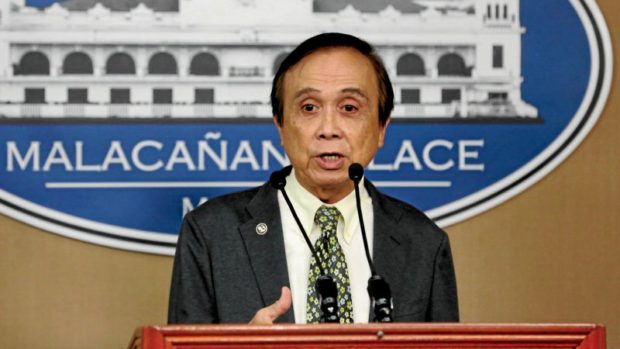Neda chief pushes BOT Law amendments

Socioeconomic Planning Secretary Ernesto M. Pernia (File photo by JOAN BONDOC / Philippine Daily Inquirer)
The country’s chief economist is pushing for the amendment of the Build-Operate-Transfer (BOT) Law as well as its implementing guidelines to enjoin private sector participation as the government rolls out “game-changing” flagship infrastructure projects.
In a statement Thursday, Socioeconomic Planning Ernesto M. Pernia said that among the proposed BOT Law amendments include the inclusion of new variants for contractual agreements such as joint ventures, as well as adoption of new approaches on unsolicited proposals to ensure transparency and competition, without sacrificing speed.
Also part of the proposed amendments of the BOT Law were the exemption from payment of real property tax for projects of national significance, among other measures that will further improve the procurement process in public-private partnership (PPP) projects, added Pernia, who heads the state planning agency National Economic and Development Authority (Neda).
The BOT Law amendments were “among our priority regulations, so as to raise the efficacy of private sector participation and to keep policies attuned to the changing business environment,” Pernia said.
In pursuit of the ambitious “Build, Build, Build” program aimed at ushering in the “golden age of infrastructure,” Pernia said the interagency Project Facilitation, Monitoring and Innovation Task Force was recently formed “to set in motion policies and processes to address bottlenecks and gaps in the country’s infrastructure development.”
Also, the task force “will institute policies and processes to address issues in the project cycle of the infrastructure flagship projects,” the Neda chief added.
Pernia also said that Neda was in discussions with other implementing and oversight agencies to enhance the Neda Board and Investment Coordination Committee project screening guidelines.
“As part of a more efficient planning and programming process of the government, programs, activities, and projects for inclusion in the country’s Public Investment Program must be examined early on and screened through a more rational and methodical process,” Pernia said.
“The final version of the guidelines would help the government identify the appropriate procurement modality that is favorable to both the government and the public. The guidelines will help government address, minimize, if not totally avoid, issues in implementing projects that can be attributed to poor project planning and programming,” Pernia added.
Under “Build, Build, Build,” the government would rollout 75 flagship projects, with about half targeted to be finished within President Duterte’s term, alongside plans to spend a total of up to P9 trillion on hard and modern infrastructure until 2022. /jpv